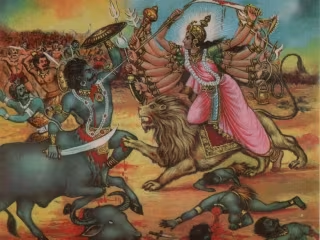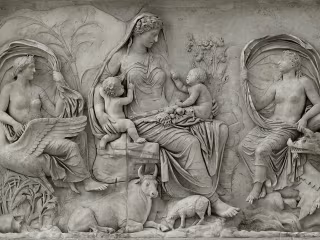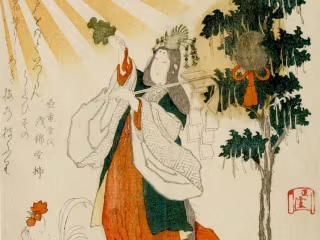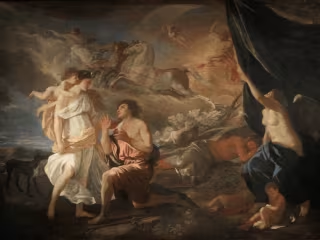Nyx: Goddess of the Night
0
Ghostwriter
Blog Writer
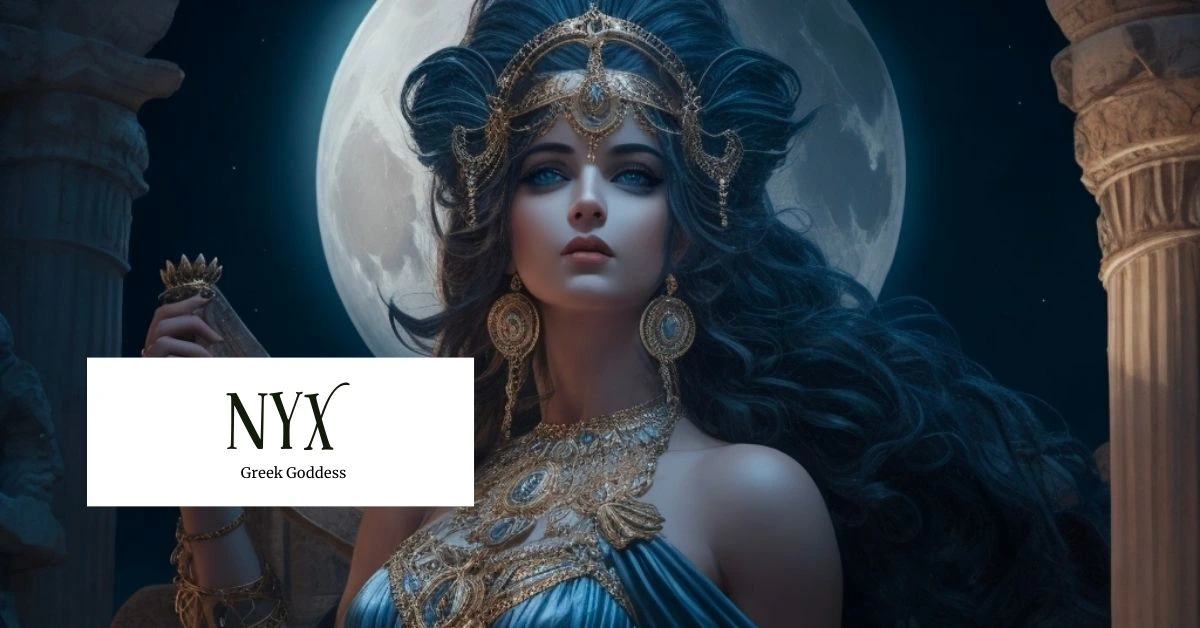
For centuries, the enigmatic and powerful Greek goddess Nyx has been the subject of fascination among ancient and modern minds alike. Her enchanting presence and intriguing mythology have made her a deity of great significance whose influence extends beyond the nightly realm. Her unique abilities, characteristics, and symbolism can be found woven throughout Greek mythology, making her one of the most compelling figures in the pantheon of gods and goddesses.
Overview of Nyx
The goddess Nyx, also known as Nox in Roman mythology, is considered the embodiment of the night and a primordial force that transcends even the divine pantheon of Mount Olympus. Her origins are veiled in obscurity, rendering her one of the most ancient entities in Greek cosmogony. The very etymology of her name underscores her essence, as “Nyx” finds its roots in the Greek word “nykt-” or “νύκτ-,” which directly translates to “night” (Tolentino). Despite her enigmatic presence in Greek mythology, Nyx holds a pivotal role as a potent and indispensable force that operates in the background, stealthily weaving her dominion over the nightly realm for gods and mortals alike. Her overarching influence remains undeniable, even though she seldom takes center stage. As such, Nyx stands as a testament to the enduring power of the night, a celestial force that predates even the mightiest of Olympian deities.
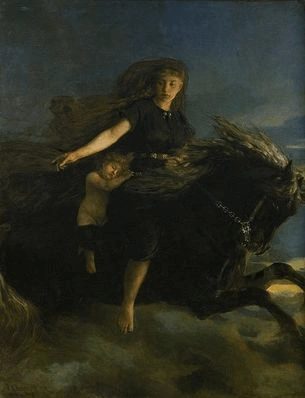
Source: Greek Legends and Myths
Titles
Mistress of Shadows
Protector of Dreams
Goddess of Darkness
Abilities
Among Nyx’s most remarkable powers is her mastery of Darkness Manipulation, which allows her to exert absolute control over the veil of darkness that enshrouds the world during the night (“Nyx”). With this power, Nyx can conceal secrets and foster an aura of mystery that permeates the dead of night. In addition to this, she also wields an awe-inspiring mastery of control over dreams, enabling her to influence and shape the dreams of mortals and immortals, granting or withholding visions of the future (“Nyx Overview, Mythology & Facts | Greek Goddess of the Night”). This control over the dream realm further establishes her as a formidable deity capable of shaping human destiny.
Moreover, Nyx’s connection to the night endows her with the ability of precognition, enabling her to have glimpses into the future. This extraordinary insight into what lies ahead makes her a potent force in determining the fates of both gods and mortals. What’s more, her invulnerability to the sun’s influence solidifies her dominion over the nocturnal realm, emphasizing her enduring and formidable presence in Greek mythology (Tolentino).
Characteristics
Nyx, the very embodiment of the night, has fascinated mythologists and poets for generations. Although ancient texts provide scant detail regarding her physical appearance, she is often portrayed as a shadowy figure draped in the cloak of darkness, shrouding her in an elusive aura (Tolentino). Her infrequent direct appearances in myths further contribute to her mysterious nature, leaving much to the imagination of those who seek to fathom her essence.
Despite lacking detailed descriptions, Nyx’s presence evokes emotions that oscillate between tranquility and foreboding. This duality reflects the night’s dichotomy, where serenity coexists with the unknown and the mysterious. As such, Nyx’s enigmatic nature embodies the complex interplay of emotions and experiences that the night brings to the mortal and divine realms, rendering her a captivating and intriguing figure in Greek mythology.
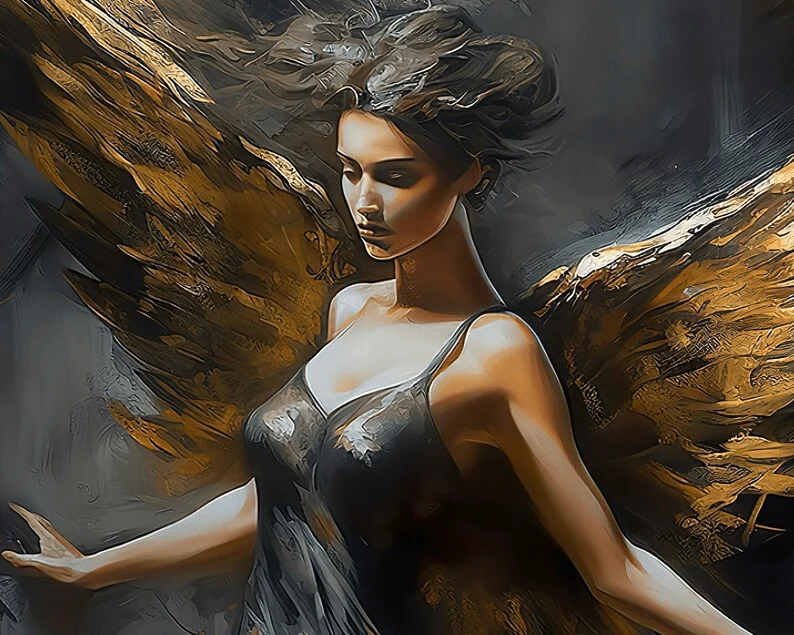
Source: Etsy
Traits
Nyx is a complex figure in Greek mythology, known for her enigmatic personality traits as mysterious as the night she represents. One of her most notable attributes is her maternal side, as she is revered as the mother of various personifications of night and darkness, such as Hypnos (Sleep) and Thanatos (Death). Nyx’s caring and protective nature is evident in this maternal role, as she oversees these fundamental aspects of existence with a watchful eye (“Nyx”).
Despite her maternal side, Nyx is also known for her mysterious aura that veils her true nature from mortals and divinities. She tends to shroud herself in secrecy, revealing her depths only when it serves her purpose (“Nyx Overview, Mythology & Facts | Greek Goddess of the Night”). This enigmatic aspect of her character adds to her intrigue, keeping those who encounter her perpetually intrigued. Additionally, Nyx is often perceived as indifferent to the plight of mortals, emphasizing her role as an impartial and transcendent force in the cosmos (“Nyx”). This detachment highlights her status as a deity whose influence extends far beyond the mortal realm, adding complexity to her character in the pantheon of Greek gods and goddesses.
Symbols
Nyx’s symbolism intricately weaves together the very essence of night and the profound mysteries it conceals. The nocturnal creatures, such as owls and other night-dwelling animals, represent her authority over the shadowy hours (Tolentino), serving as her earthly emissaries. The celestial heavens, adorned with countless stars, symbolize Nyx’s divine power, mirroring the expanse of her dominion over the nocturnal realm. As a symbol of the lunar cycle, the crescent moon subtly alludes to her role in the nightly progression of time (“Nyx Overview, Mythology & Facts | Greek Goddess of the Night”), marking the cyclical nature of darkness and the mysteries it unfolds. Nyx’s symbolism is a profound testament to her enduring influence over the cosmos and the secrets concealed within the night.
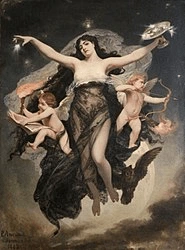
Source: Wikipedia Commons
Festivals and Rituals
The influence of Nyx may not be immediately apparent in many Greek festivals and rituals, yet it subtly permeates various nightly celebrations and practices throughout Greek culture. An example of this influence can be found in the Eleusinian Mysteries, a prominent ancient Greek religious event dedicated primarily to Demeter and Persephone. Although the focus is on these goddesses, the Eleusinian Mysteries also featured nighttime rituals. Initiates would participate in solemn nighttime processions, symbolizing the return of light after the darkness of the night (Tolentino).
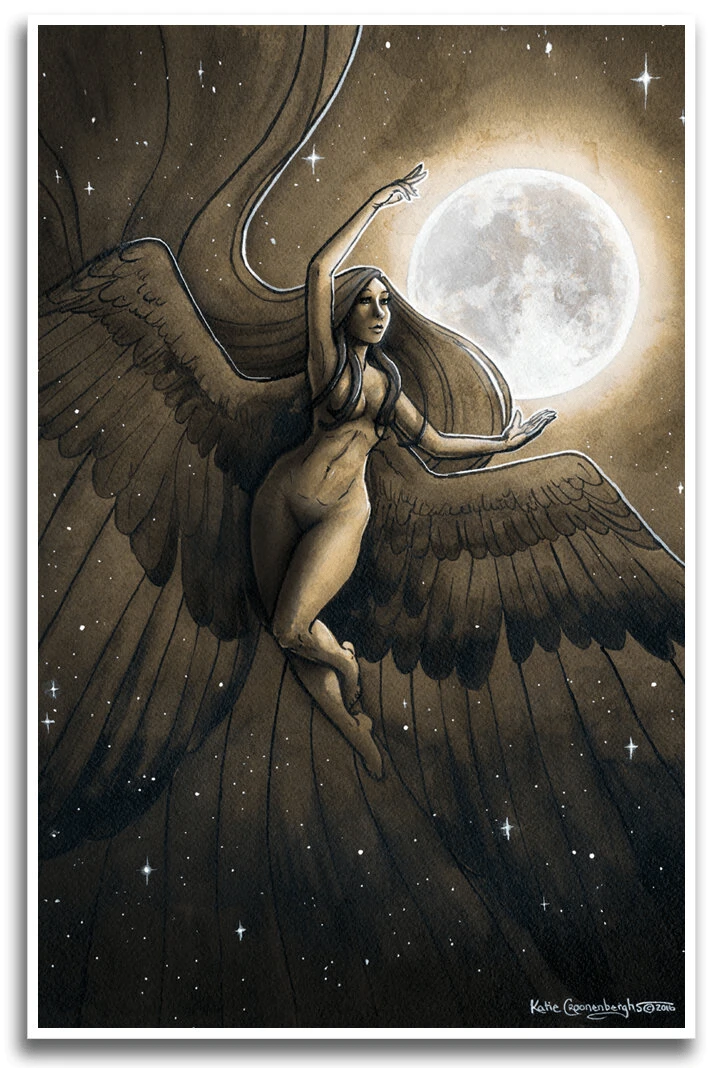
Source: Art of Katie Croonberghs
Legends associated with Nyx
The mythology of ancient Greece holds a vast array of captivating stories and characters, among which Nyx, the goddess of night, takes a prominent place. Shrouded in different interpretations and narratives, her origin story sheds light on her complex and intriguing character and highlights her undeniable significance among the pantheon of Greek deities.
Origin story
The origins of Nyx present an intriguing divergence in various sources, highlighting the complexity and fluidity of Greek mythology. In Hesiod’s “Theogony,” Nyx emerges as a significant cosmic figure at the beginning of creation. She personifies the primordial darkness that existed before all other deities, including the mighty Titans and the Olympian gods. This account portrays Nyx as self-generated, bearing no conventional parentage. Nyx’s embodiment of the cosmic night conveys the timeless and boundless essence of darkness, setting the stage for the unfolding drama of the Greek pantheon (“Nyx”).
On the other hand, in another version of her origin, Nyx is depicted as one of the offspring of Chaos, alongside Erebus (Darkness), Aether (Light), and Hemera (Day). This variant accentuates her connection to Chaos, underscoring her role as a fundamental force that predates even the most prominent deities of Mount Olympus. Nyx’s association with Chaos emphasizes her status as an ancient and enduring cosmic entity wielding influence over the celestial order (Tolentino). These divergent origin stories deepen the enigmatic allure of Nyx.
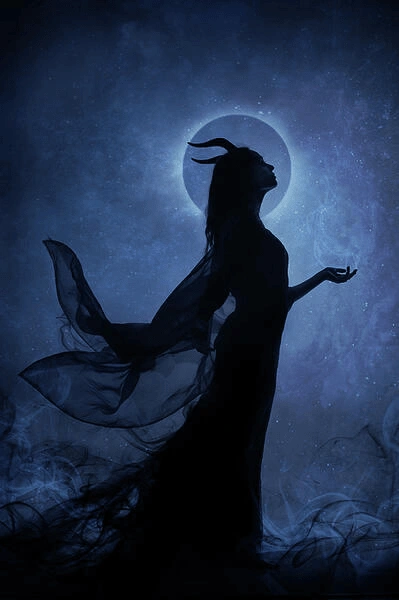
Sourrce: Fine Art America
The Mother of Sleep and Death
A prominent legend closely linked to Nyx portrays her as the mother of Hypnos (Sleep) and Thanatos (Death), exemplifying her intricate role in the fabric of existence. In this compelling narrative, Nyx’s divine offspring personify the inherent aspects of the night, where sleep and death are intricately intertwined. Hypnos, the embodiment of soothing slumber, is often depicted as a gentle deity responsible for lulling gods and mortals into restful repose. His tranquil influence brings solace to weary souls, underlining the nurturing aspect of Nyx as a motherly figure (“Nyx”).
Conversely, Thanatos embodies the relentless force of death, shouldering the solemn responsibility of guiding departed souls to the afterlife. He represents the ultimate conclusion of mortal existence, emphasizing the inevitability of death within the grand scheme of life. This legend serves as a poignant reminder of Nyx’s connection to the natural order, where life and death are intrinsically bound, and she presides over the enigmatic realm that bridges the two (“Nyx”). Nyx’s role as the mother of these contrasting deities underscores her multifaceted presence in Greek mythology, where she symbolizes both the nurturing and the inevitable aspects of existence.
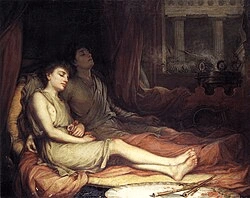
Source: Research Gate
Safeguarding Zeus’ Thunderbolt
The legend of Nyx’s involvement in safeguarding Zeus’ thunderbolt is a tale highlighting her significance in matters of divine importance and the celestial hierarchy. As the goddess of the night, Nyx has an intimate connection to the mysterious depths of darkness and possesses formidable influence. In this story, Zeus recognizes the need to protect his potent symbol of divine authority and power from potential theft or misuse and turns to Nyx for assistance. With her willingness to play a pivotal role in preserving the balance of power among the gods, Nyx agrees to conceal the thunderbolt securely deep within Tartarus’s dark and forbidding confines, a realm intricately associated with the underworld (“Nyx Overview, Mythology & Facts | Greek Goddess of the Night”). This legend showcases Nyx’s reach that extends far beyond the nocturnal realm, underscoring her importance in matters of divine significance.
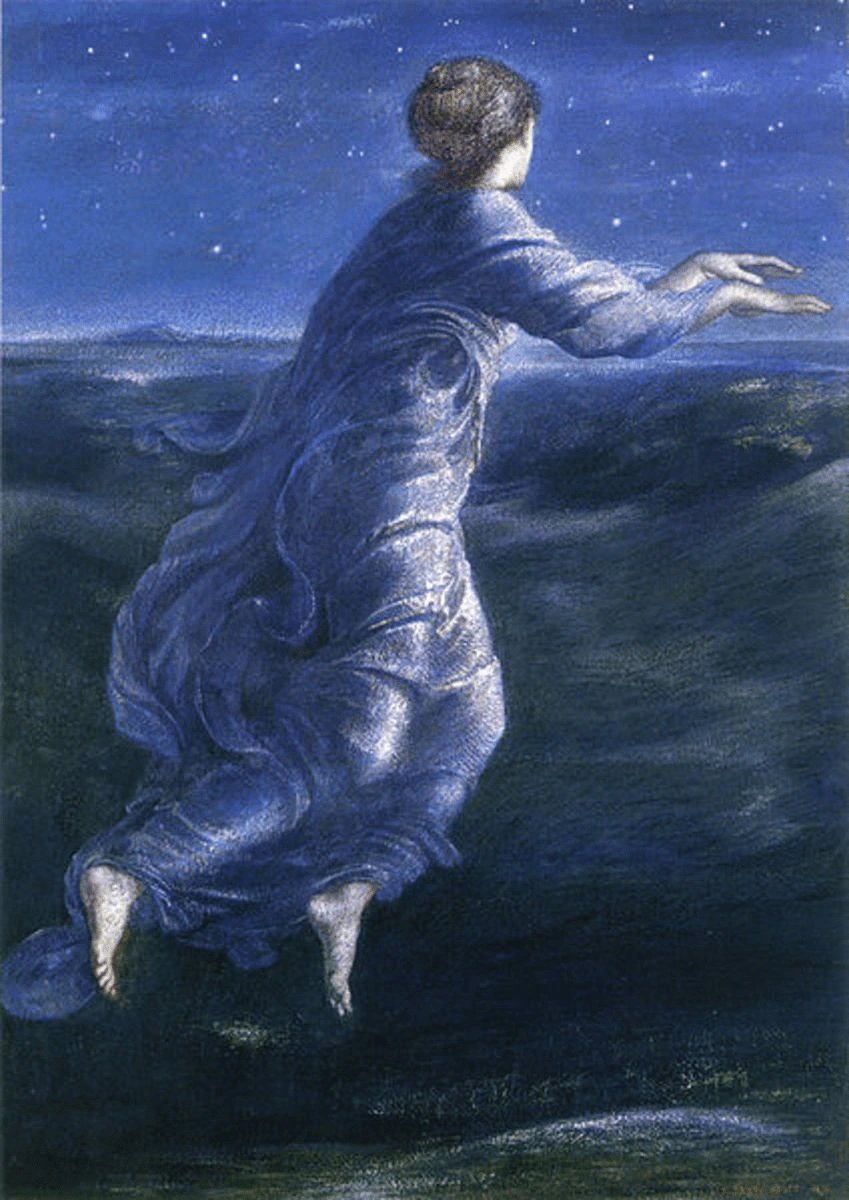
Source: HubPages
Influences of other religions/cultures on Nyx
The character and attributes of Nyx extend beyond the realm of Greek mythology. As the personification of night, her concept shares similarities with deities in other cultures. For instance, the Egyptian goddess Nut, who represents the sky and the night, embodies the vast expanse of her respective domain and the mysteries concealed within the night, much like Nyx. Moreover, the Roman goddess Nox, Nyx’s counterpart, exemplifies the cross-cultural appeal of the goddess of night, transcending Greek and Roman religious contexts (“Nyx”).
Modern appearances
Throughout the ages, Nyx has remained a prominent figure, albeit in various forms. Her enduring presence has inspired countless literature, art, and popular culture works. In literature, her name frequently appears in fantasy novels, evoking the mystical and enigmatic qualities of the night. In the renowned young adult fantasy series House of Night, Nyx is the primordial vampire goddess who bestows the protagonist, Zoey Redbird, with distinct powers. In visual arts, Nyx’s symbolism is often depicted in paintings and sculptures that explore the interplay between darkness and light.
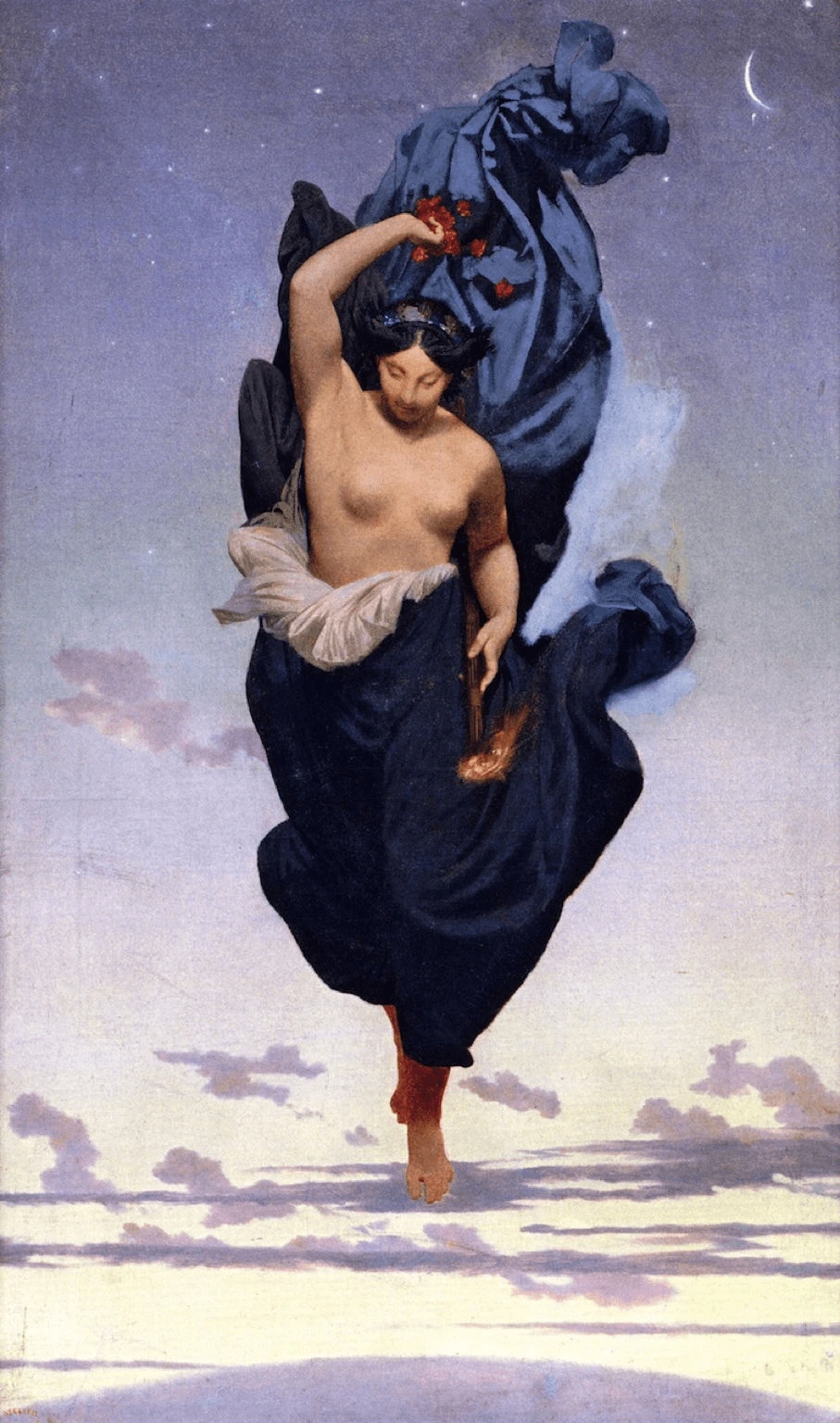
Source: The Eclectic Light Company
Final thoughts
Nyx, the Greek goddess of the night, is a profound figure in Greek mythology. Her legends and origin story shed light on her pivotal role as a primordial force, encapsulating the essence of darkness and the arcane secrets hidden within the cover of night. Whether assuming the mantle of a nurturing protector, a guardian of divine treasures, or a cosmic presence, Nyx’s influence resonates deeply within Greek mythology and maintains an enduring fascination for contemporary audiences. Her timeless allure lies in her capacity to encapsulate the night’s intricacies and the unfathomable perpetual magnetism. In all her mysterious glory, Nyx remains a symbol of the enduring power and enigma of the night, leaving an indelible mark on the Greek mythological tradition.
References
“Nyx.” Wikipedia, 20 Oct. 2020, en.wikipedia.org/wiki/Nyx.
“Nyx.” Mythopedia, mythopedia.com/topics/nyx.
“Nyx Overview, Mythology & Facts | Greek Goddess of the Night.” Study.com, 2023, study.com/academy/lesson/nyx-overview-mythology-facts.html.
Tolentino, Cierra. “Nyx: Greek Goddess of the Night | History Cooperative.” History Cooperative, 19 Aug. 2022, historycooperative.org/nyx-goddess-of-the-night/.
Did we miss something? Do you know another aspect of this legend? Don't hesitate to reach out!
Like this project
0
A client hired me to write several informative pieces on Greek Goddesses, and this blog post centers around the Goddess of Night, Nyx.
Likes
0
Views
1942
Tags
Ghostwriter
Blog Writer


